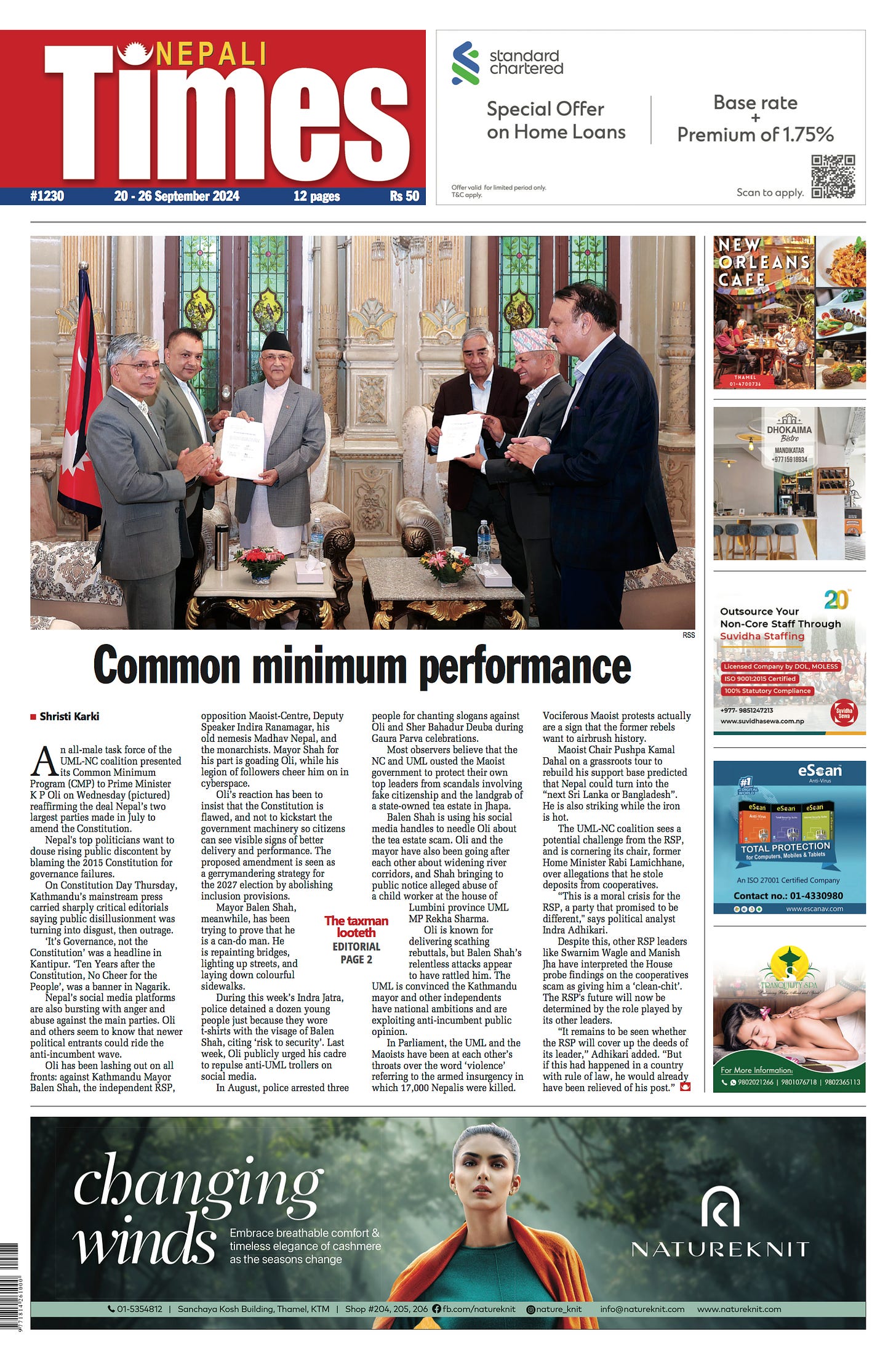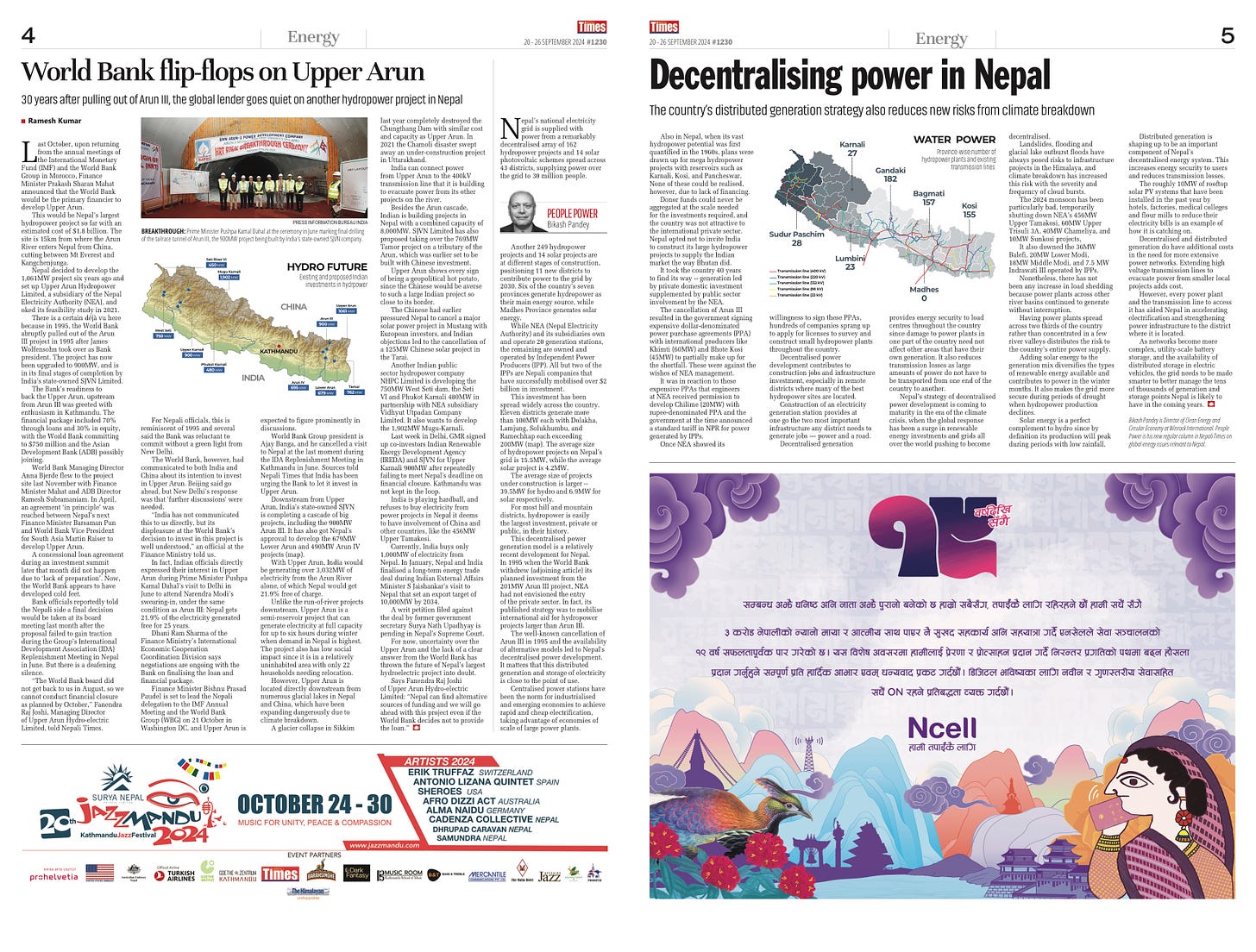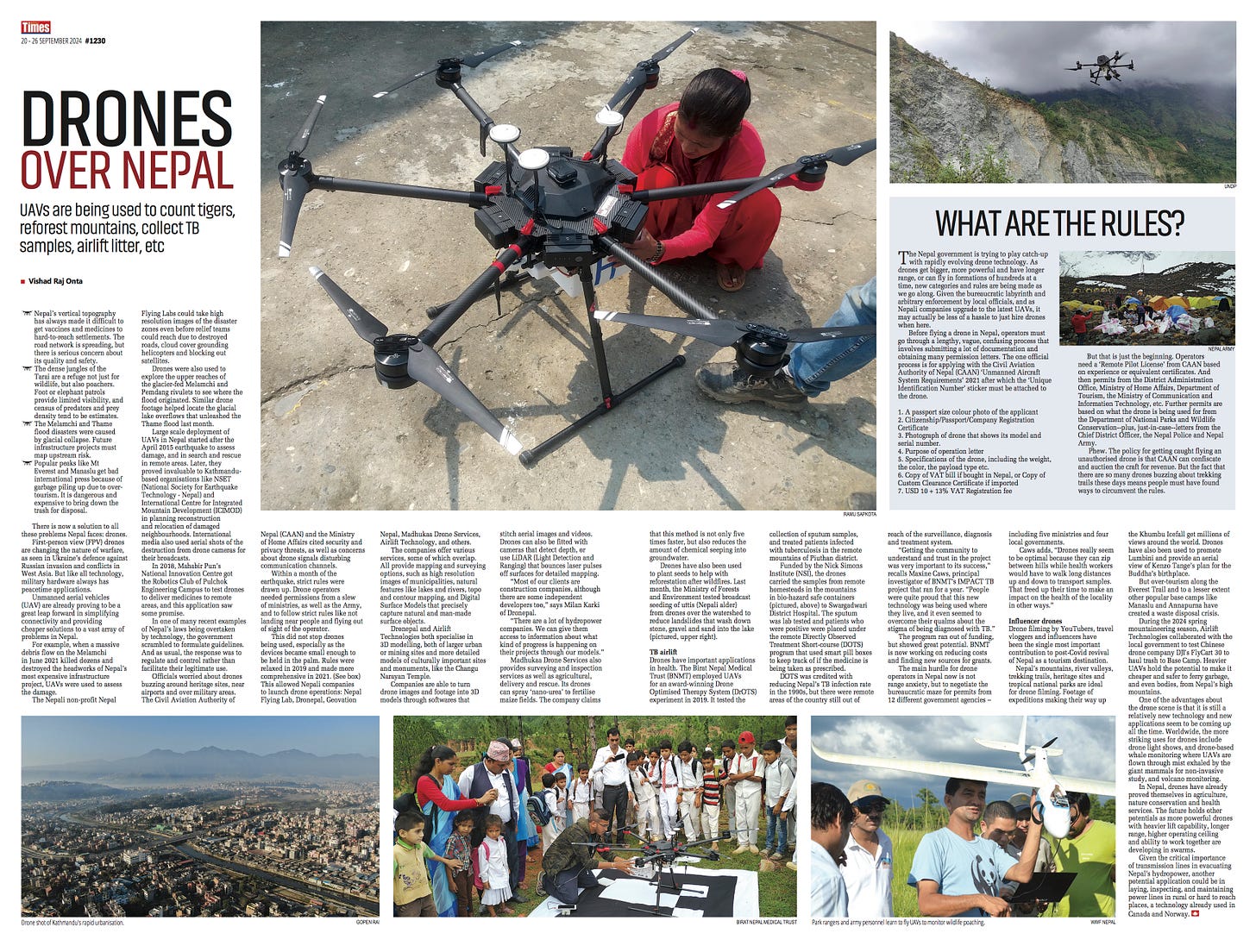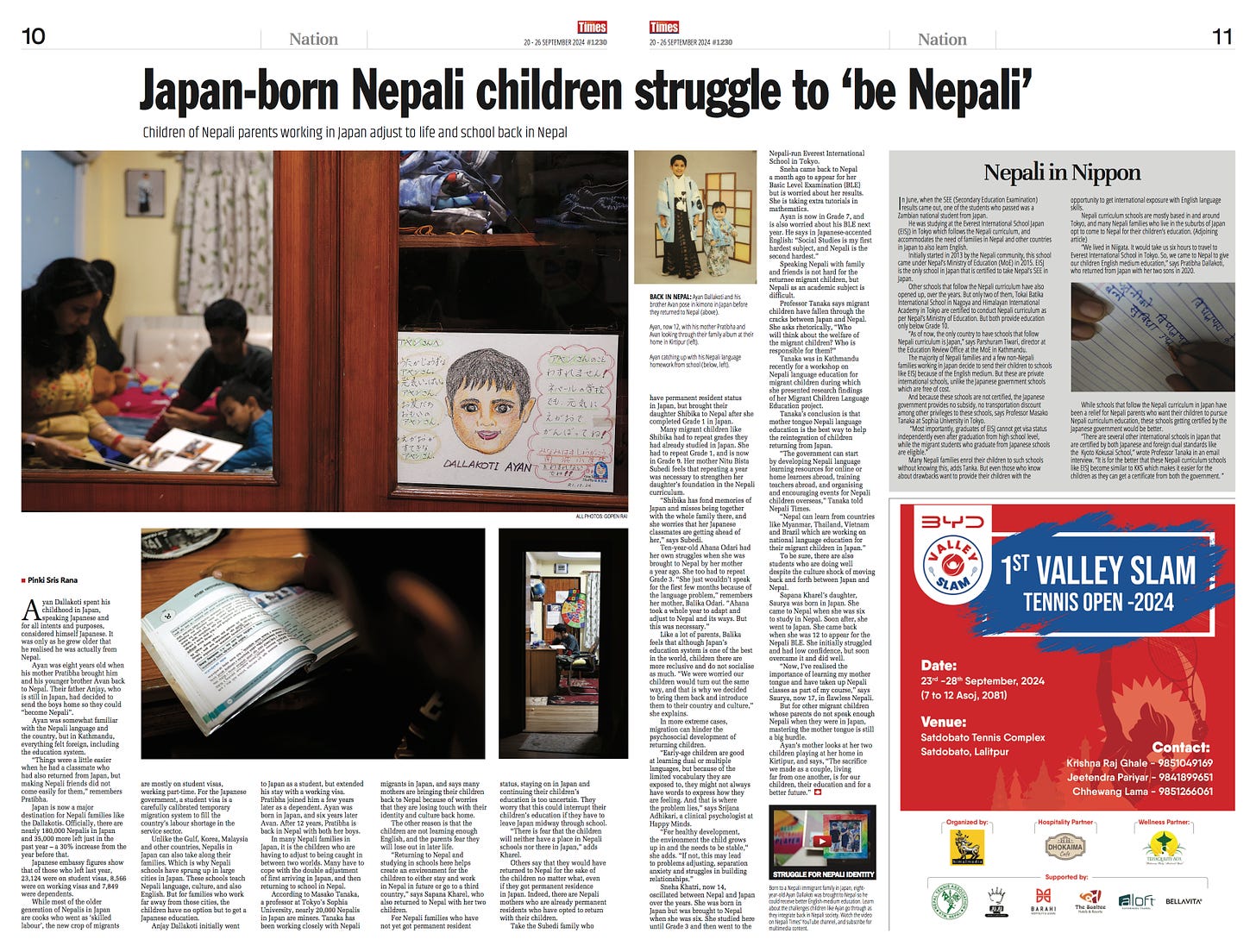Hope all is well with everyone,
In the Anglosphere, they say there are only two things certain in life: death and taxes. We have amended that slightly in Nepal to believe that the only two certain things are death and reincarnation.
It’s encouraging to see that the new grabberment is taxing anything that moves, because that is what we pay them for with our taxes. However, it is prudent to ask: is the gobblement doing enough to enlarge the taxonomy?
No, it has been lax on tax. It is evading raising taxes. There is still one activity that is outside the tax bracket, and that is corruption. In fact, this mainstay of Nepal’s economy is completely tax free. Let us legalise corruption, and bring under-the-table deals out in the open in the interest of transparency.
This also means we can slap a 13% VAT, 5% Service Charge and a 3% National Graft Surcharge on every bribe. How about taxing kickbacks to kickstart the economy?
Now, getting back to the real world. Turn to page 2 Editorial of this edition of Nepali Times to read Ramesh Kumar’s rundown (The Taxman Looteth) on how the government has been taxing the poor and giving tax exemptions to the captains of industry for the past decades.
And the page 1 story by Special Correspondent Shristi Karki is about how the government’s new Common Minimum Program unveiled this week is proof that this coalition is trying to get by with the minimum. There are no tangible signs that Nepal’s serial prime ministers and superannuated politicians are aware that public discontent is turning into outrage, and support for populist figures (Common Minimum Performance).
The hydropower package this week includes an op-ed by energy expert Bikash Pandey of Winrock International on how Nepal has successfully spread out its electricity generation capacity to reduce risk (Decentralising Power in Nepal). This was largely due to the cancellation of the Arun II project in 1995, but as Ramesh Kumar reports on page 4, the World Bank appears now to have pulled out of the Upper Arun project and handing it over to Indian investors (World Bank Flip Flop on Upper Arun).
Nepali Times has in the past covered the potential use of UAVs in conservation, surveying disasters, and as a flying pharmacy. This week, Reporter Vishad Raj Onta updates us on new possibilities like using delivery drones to sow seeds for reforestation, and removing mountaineering expedition garbage (Drones over Nepal). But, as usual, the government is more interested in controlling drone applications with convoluted regulations, than facilitating it.
On page 10-11, Pinki Sris Rana interviews Nepali parents of children born in Japan and how they struggle to adapt to the school curriculum and culture in their home country (Japan-born Nepali children struggle to ‘be Nepali’).
Ja ne till next week.
Kunda Dixit






